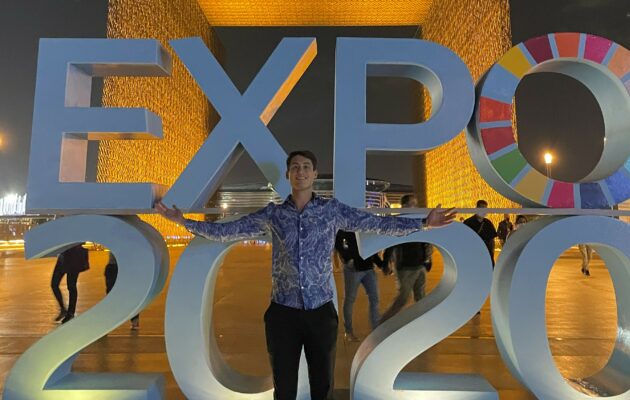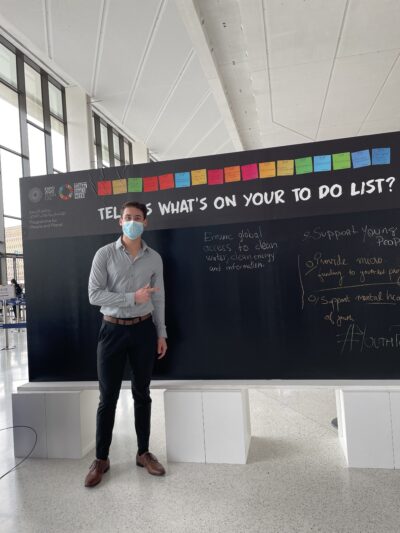
By Martin Kocher, University of Wisconsin-Eau Claire '23
In January 2022, I boarded a 15-hour flight from Chicago O’Hare International airport to Dubai in the United Arab Emirates (UAE). I flew to Dubai to attend the long-anticipated Expo 2020 event, postponed by a year due to the Coronavirus pandemic. The World Expo happens every five years and the goal is for each participating country to showcase their culture, technological innovations, and contributions for a better world.
Arguably the most significant world expo in world history, being at the geographic center of Europe, Asia, and Africa, the UAE won the bid to host the world expo in 2013. The UAE was recognized for its multiculturalism and stability, making it a great meeting point for all cultures to start off the decade.
The main theme of Expo 2020 was connecting minds, creating the future in the following three categories: sustainability, mobility, and opportunity.
On my first day at Expo, I attended the Global Best Practice Programme, an assembly sponsored by organizations such as the United Nations with the goal of promoting innovative ideas that align with the UNs 17 Sustainable Development Goals, or SDG’s for short. My favorite pavilions were the USA pavilion, El Salvador pavilion, Yemen Pavilion, India pavilion, and the UAE pavilion.
A Lesson in Cultural Competence
Out of all the things I learned during this experience, the people I met taught me the most. Meeting so many wonderful people around the world taught me so many lessons about myself, about them, and about the world as a whole.

Cultural competence is my biggest lesson from Expo 2020.
Being tolerant of other cultures and religious beliefs is important because you're respecting not only other people but also yourself. You show yourself that you can connect with people from a different culture and a different background than you and still relate to each other about the things that truly make us human. You trust yourself to be comfortable with the unfamiliar. You build self-confidence by proving to yourself that you can overcome and grow from a challenge. The most important form of respect is the respect you give yourself, and how you achieve self-respect is by respecting others.
Consciousness and the interpretation of the great mystery we call life that we are all trying hard to figure out varies between cultures. For example, a key difference between eastern and western cultures is how time is perceived: In western cultures, time is mono-chronic, meaning it is perceived as a set unit of measurement, and in eastern cultures, time is poly-chronic, which means time is seen as flexible.
But plain and simple, just be respectful. Ask general questions about their culture, and be generally interested in participating.
It's an incredible feeling being invited to participate in another culture.
If you want to learn more about cross-cultural communication and cultural tolerance, I highly recommend the book The Culture Map by Erin Meyer. After reading the Culture Map, I learned so many things not only about my own culture but about different cultures as well. It is truly beautiful to see how we are all different but all the same.
Geert Hofstede, an international leader in the field of cultural competence, defines culture as simply software of the mind.
In a world where negative news gets most of our attention, choose your information source wisely, and focus on how the world is coming together and responding to the problems facing our future. Be the change in the world that you wish to see, hold those with power accountable, and most importantly, hold yourself accountable to be a lifelong student of the world.
And, as always, never underestimate the human potential. Let's go out and make the world a better place together.
You'll see me at expo 2025 in Osaka, Japan, and hopefully, I’ll see you there!
Interested in exploring and promoting sustainability efforts among language learners? We invite you to nominate a K-20 educator or postsecondary student for the new LCF/Klett World Languages Award for Sustainable Development Education in the World Language Classroom by June 30, 2023.
And, as always, visit @LangConnectsFdn on social media to share your story with us.
